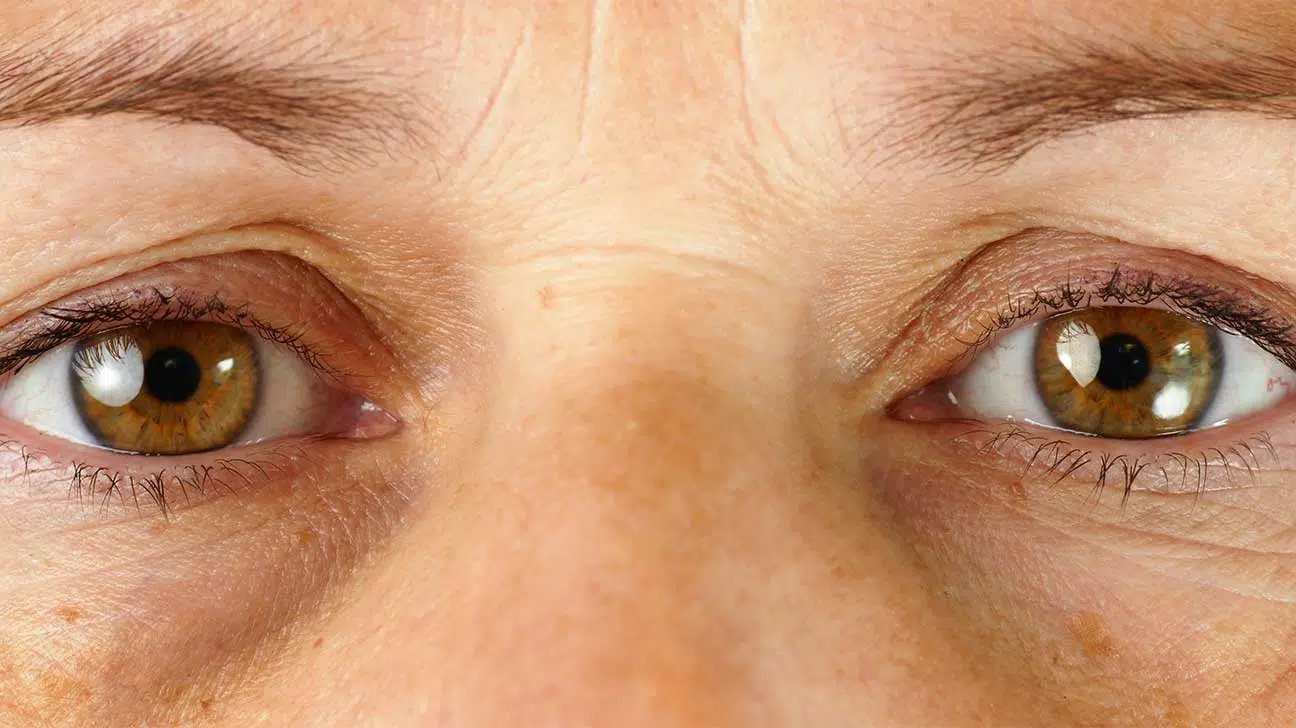
As strange as it may sound, eye color does seem to affect your alcohol tolerance.
Among people of European ancestry, dark eyes tend to be associated with high alcohol tolerance, and blue eyes tend to be associated with low alcohol tolerance.
Interestingly, that same association has an impact on pain tolerance as well.
The Link Between Eye Color And Alcohol Tolerance
The connection between eye color and alcohol tolerance is more than anecdotal.
New research shows that there is a connection between the color of your eyes and the level of tolerance that you have for alcohol.
As a result, people with a certain color of eyes are more likely to have alcohol use disorder.
Light Eyes And Tolerance
People with lighter eyes tend to have a lower tolerance for alcohol and feel its effects more quickly with less alcohol consumption.
Light eye colors can include:
- green eyes
- hazel eyes
- blue eyes
People with these color eyes can also have a tendency toward alcohol abuse.
Dark-Eyed People And Tolerance
By contrast, dark-eyed individuals seem to have a higher tolerance for alcohol consumption.
Whereas people with light eyes feel its effects quickly, people with dark eyes take longer to feel the same effects.
These people can have less of a tendency toward alcohol use disorder.
Melanin
Melanin is the substance in our bodies that controls the pigment of our hair, skin, or eyes.
The presence of melanin corresponds to whether or not you have light or dark eyes:
- People with blue eyes have little melanin.
- People with hazel or green eyes have more melanin.
- People with brown eyes have a high concentration of melanin.
There is no single gene that impacts whether you will have an alcohol use disorder, so it is wrong to say that if you have blue eye color, you will develop an alcohol use disorder.
However, in the same way that people with pale skin should minimize or control sun exposure, it may be the case that people with light-colored eyes should do the same with alcohol consumption.
Other Factors That Influence Alcohol Tolerance
The reality is that many factors can influence alcohol use and related tolerance levels.
Aside from environmental or cultural influence, here are some biological factors that could influence alcohol tolerance.
Ethnicity
It has been well documented that alcohol tolerance can vary among ethnicities.
For example, people of Asian descent tend to have a higher sensitivity to the effects of alcohol, whereas people of caucasian descent have a lower sensitivity.
Metabolism
In a physiological sense, there are two types of tolerance to alcohol, one of which is metabolic tolerance.
Those who have a more efficient metabolism experience a faster decline in blood alcohol concentration (BAC), giving them a higher tolerance.
Functional Tolerance
The other type of physiological tolerance is called functional tolerance, which can be difficult to define.
Simply put, it describes the tolerance that develops with each incident of alcohol consumption after the first time you drink it.
People with a functional tolerance tend to be able to not appear intoxicated, even when they are.
Do Blue-Eyed People Have A Higher Risk Of Alcohol Addiction?
Blue eyes do not constitute an immediate alcohol dependence diagnosis.
But some research indicates that blue-eyed European Americans do have a higher risk for alcoholism than people with darker eyes.
Treatment Options For Alcohol Addiction
However, people of all eye colors and ethnicities can develop alcohol use disorder. But you do not have to continue to live with an alcohol addiction.
Treatment is available throughout the United States and can take the form of:
- inpatient and outpatient treatment
- alcohol detox
- medication-assisted treatment
- evidence-based therapy
- support groups
Find Alcohol Treatment Services Near You
At AddictionResource.net, we give you the resources you need to find a treatment center near you. Our services are confidential and compassionate.
Call our helpline today and get the information you need so you or your loved one can start the journey toward sobriety.
Addiction Resource aims to provide only the most current, accurate information in regards to addiction and addiction treatment, which means we only reference the most credible sources available.
These include peer-reviewed journals, government entities and academic institutions, and leaders in addiction healthcare and advocacy. Learn more about how we safeguard our content by viewing our editorial policy.
- Alcohol and Alcoholism — Racial Differences in Alcohol Sensitivity
https://pubmed.ncbi.nlm.nih.gov/2937417/ - Missouri Medicine — More than Meets the Eye: Eye Color and Alcoholism
https://www.ncbi.nlm.nih.gov/pmc/articles/PMC6139948/ - National Institute on Alcohol Abuse and Alcoholism — Alcohol Tolerance
https://pubs.niaaa.nih.gov/publications/aa28.htm#:~:text=Tolerance%20that%20results%20from%20a,drinking%20(21%2C22). - Pharmacology Biochemistry and Behavior — The regulation of alcohol intake by melanin-concentrating hormone in rats
https://www.ncbi.nlm.nih.gov/pmc/articles/PMC3856657/ - University of Virginia — NIH - Mechanisms of Alcohol Tolerance (R21/R33 Clinical Trial Not Allowed)
https://news.med.virginia.edu/deansoffice/2018/02/nih-mechanisms-of-alcohol-tolerance-r21r33-clinical-trial-not-allowed/#:~:text=Functional%20tolerance%20refers%20to%20lessened,expressed%20in%20the%20nervous%20system.


